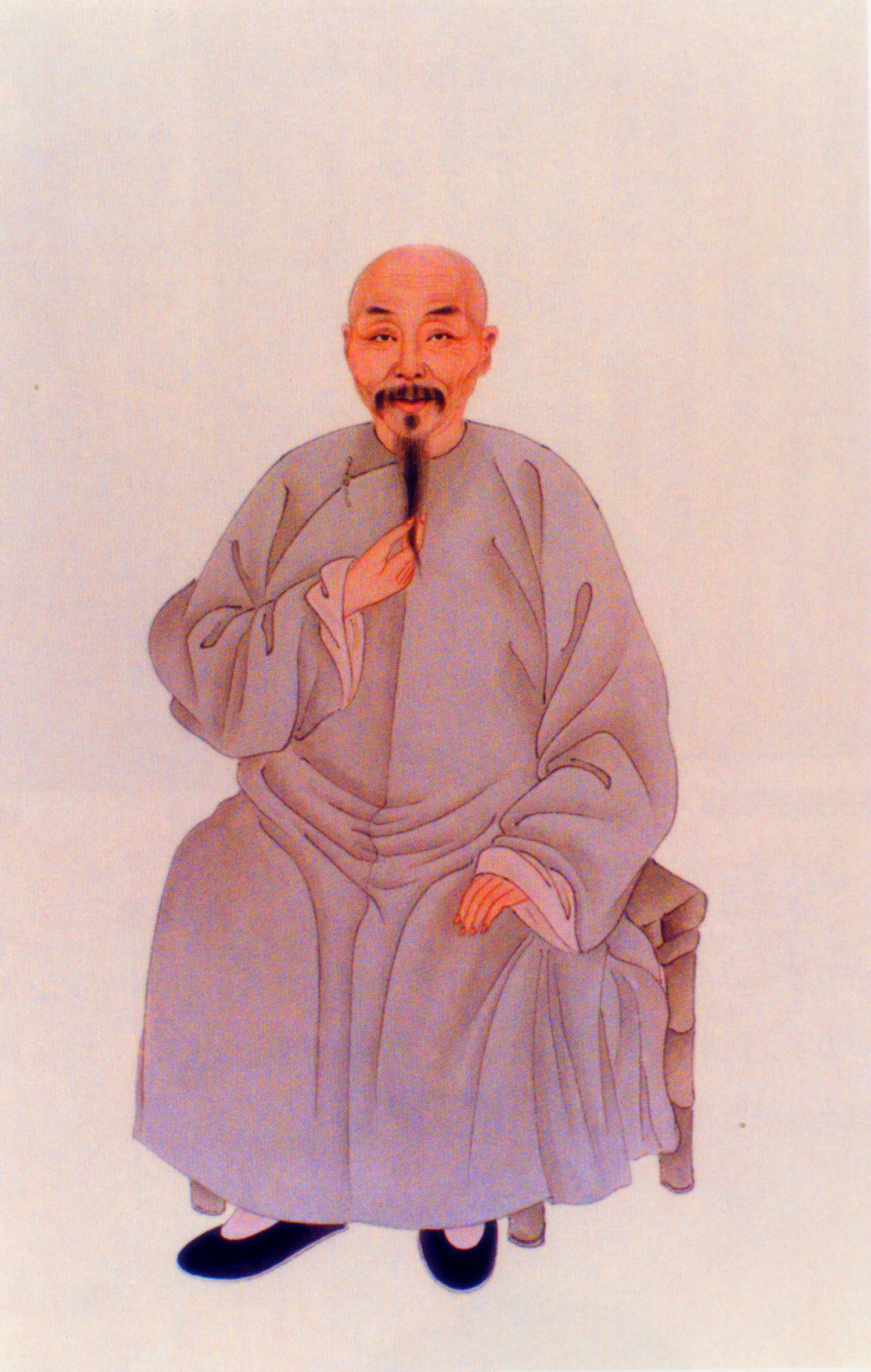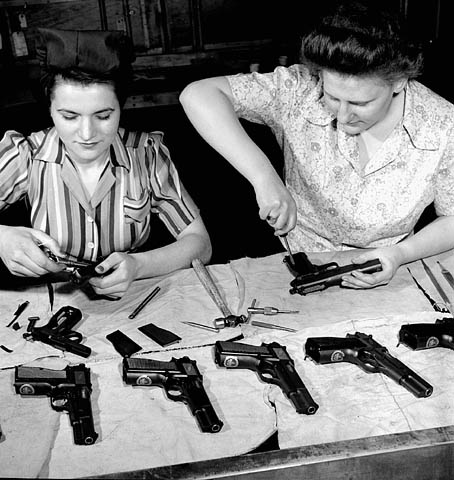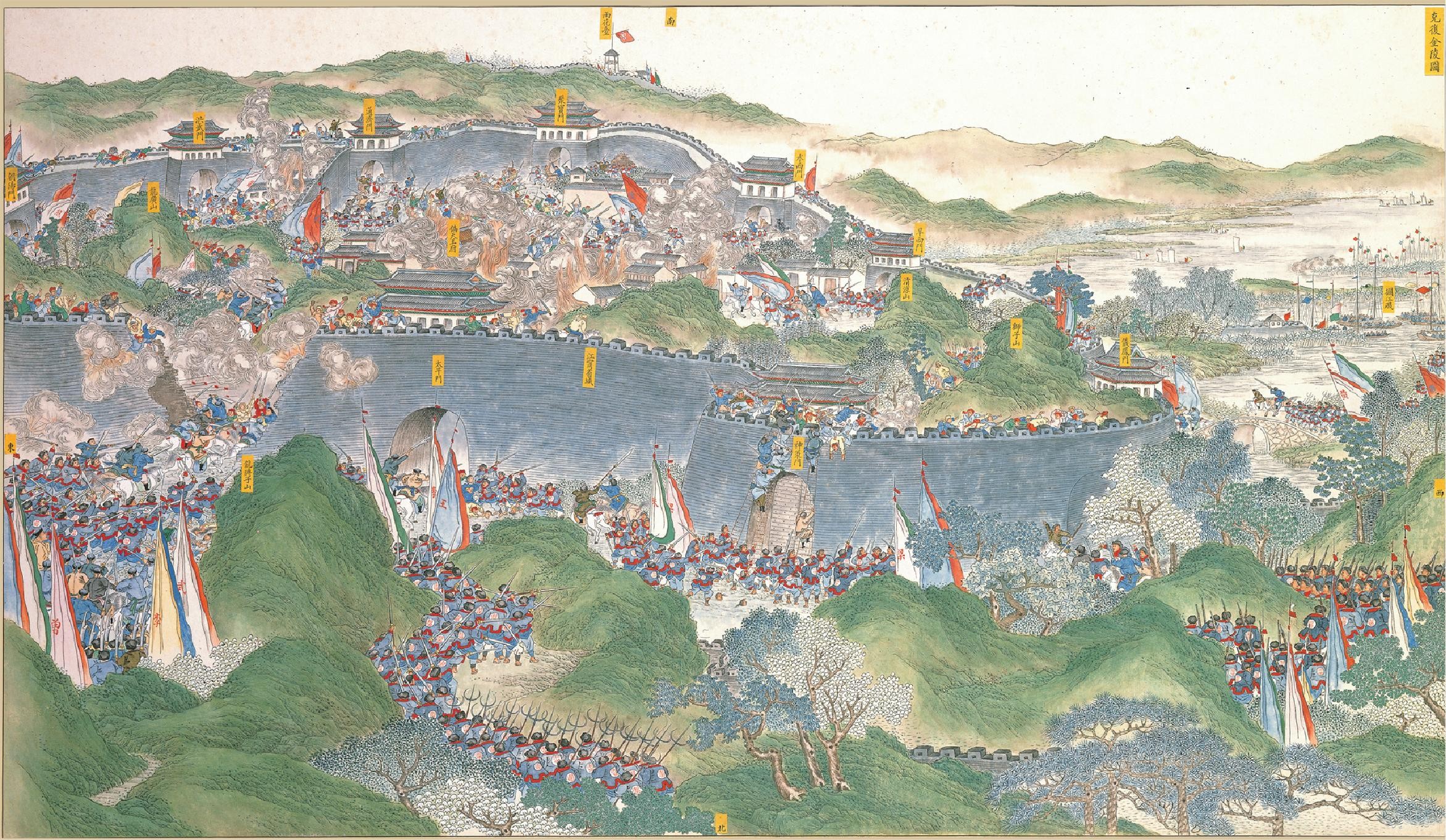|
Self-Strengthening Movement
The Self-Strengthening Movement, also known as the Westernization or Western Affairs Movement (–1895), was a period of radical institutional reforms initiated in China during the late Qing dynasty following the military disasters of the Opium Wars. The British and French burning of the Old Summer Palace in 1860 as Taiping rebel armies marched north, forced the imperial court to acknowledge the crisis. Prince Gong was made regent, Grand Councilor, and head of the newly formed Zongli Yamen (a ''de facto'' foreign affairs ministry). Local Han Chinese officials such as Zeng Guofan established private westernized militias in prosecuting the war against the rebels. Zeng and his armies eventually defeated the rebels and prosecuted efforts to import Western military technology and to translate Western scientific knowledge. They established successful arsenals, schools, and munitions factories. In the 1870s and 1880s, their successors used their positions as provincial officials to b ... [...More Info...] [...Related Items...] OR: [Wikipedia] [Google] [Baidu] |
Foochow Arsenal
The Foochow Arsenal, also known as the Fuzhou or Mawei Arsenal, was one of several shipyards created by the Qing Empire and a flagship project of French assistance to China during the Self-Strengthening Movement. The shipyard was constructed under orders from Li Hongzhang and Zuo Zongtang and was situated in Mamoi (now Mawei), a port town within the jurisdiction of Fuzhou (then romanized as "Foochow"), which is several miles up the Min River. History Planning for the shipyard, the Fuzhou Naval College and other facilities began in 1866. Construction began in 1867. Two French Naval officers, Prosper Giquel and Paul d'Aiguebelle, both on leave from the French Imperial Navy, were contracted to recruit a staff of about forty European engineers and mechanics, and to oversee the construction of a metal-working forge, the creation of a Western-style naval dockyard, the construction of eleven transports and five gunboats, and the establishment of schools for training in navigation ... [...More Info...] [...Related Items...] OR: [Wikipedia] [Google] [Baidu] |
Shanghai
Shanghai (; , , Standard Mandarin pronunciation: ) is one of the four direct-administered municipalities of the People's Republic of China (PRC). The city is located on the southern estuary of the Yangtze River, with the Huangpu River flowing through it. With a population of 24.89 million as of 2021, Shanghai is the most populous urban area in China with 39,300,000 inhabitants living in the Shanghai metropolitan area, the second most populous city proper in the world (after Chongqing) and the only city in East Asia with a GDP greater than its corresponding capital. Shanghai ranks second among the administrative divisions of Mainland China in human development index (after Beijing). As of 2018, the Greater Shanghai metropolitan area was estimated to produce a gross metropolitan product ( nominal) of nearly 9.1 trillion RMB ($1.33 trillion), exceeding that of Mexico with GDP of $1.22 trillion, the 15th largest in the world. Shanghai is one of the world's major centers for f ... [...More Info...] [...Related Items...] OR: [Wikipedia] [Google] [Baidu] |
Tianjin
Tianjin (; ; Mandarin: ), alternately romanized as Tientsin (), is a municipality and a coastal metropolis in Northern China on the shore of the Bohai Sea. It is one of the nine national central cities in Mainland China, with a total population of 13,866,009 inhabitants during the 2020 Chinese census. Its built-up (''or metro'') area, made up of 12 central districts (all but Baodi, Jizhou, Jinghai and Ninghe), was home to 11,165,706 inhabitants and is also the world's 29th-largest agglomeration (between Chengdu and Rio de Janeiro) and 11th- most populous city proper. It is governed as one of the four municipalities under the direct administration of Chinese central government and is thus under direct administration of the State Council. Tianjin borders Hebei Province and Beijing Municipality, bounded to the east by the Bohai Gulf portion of the Yellow Sea. Part of the Bohai Economic Rim, it is the largest coastal city in Northern China and part of the Jing-Jin-Ji meg ... [...More Info...] [...Related Items...] OR: [Wikipedia] [Google] [Baidu] |
Tongwen Guan
The School of Combined Learning, or the Tongwen Guan () was a government school for teaching Western languages (and later scientific subjects), founded at Peking (Beijing), China in 1862 during the late-Qing dynasty, right after the conclusion of the Second Opium War, as part of the Self-Strengthening Movement. Its establishment was intimately linked to the establishment of the Zongli Yamen, the Qing office of foreign affairs. Background Small, specialized government foreign language schools have long existed in China since the Ming dynasty. As early as 1407, China had an Office for the Languages of Nations of Four Directions (四夷舘/四夷馆 sì yí guǎn), for the purposes of translating documents from minority and nomadic groups including the Mongols, Jurchens, Hui, and Burmese, who delivered tribute to the court. This office was under the Hanlin Academy, and selected students from the Guozijian. These students were made translation officials after graduating, and were ... [...More Info...] [...Related Items...] OR: [Wikipedia] [Google] [Baidu] |
Arms Industry
The arms industry, also known as the arms trade, is a global industry classification, industry which manufacturing, manufactures and sells weapons and military technology. It consists of a commerce, commercial Private industry, industry involved in the research and development, engineering, production, and servicing of military material, equipment, and facilities. Arms-producing companies, also referred to as arms dealers, or as the military industry, produce arms for the armed forces of State (polity), states and for civilians. Departments of government also operate in the arms industry, buying and selling weapons, munitions and other military items. An arsenal is a place where arms and ammunition - whether privately or publicly owned - are made, maintained and repaired, stored, or issued, in any combination. Products of the arms industry include guns, artillery, ammunition, missiles, military aircraft, military vehicles, Naval ship, ships, electronics, electronic systems, milita ... [...More Info...] [...Related Items...] OR: [Wikipedia] [Google] [Baidu] |
Charles George Gordon
Major-General Charles George Gordon CB (28 January 1833 – 26 January 1885), also known as Chinese Gordon, Gordon Pasha, and Gordon of Khartoum, was a British Army officer and administrator. He saw action in the Crimean War as an officer in the British Army. However, he made his military reputation in China, where he was placed in command of the " Ever Victorious Army", a force of Chinese soldiers led by European officers which was instrumental in putting down the Taiping Rebellion, regularly defeating much larger forces. For these accomplishments, he was given the nickname "Chinese Gordon" and honours from both the Emperor of China and the British. He entered the service of the Khedive of Egypt in 1873 (with British government approval) and later became the Governor-General of the Sudan, where he did much to suppress revolts and the local slave trade. Exhausted, he resigned and returned to Europe in 1880. A serious revolt then broke out in the Sudan, led by a Muslim rel ... [...More Info...] [...Related Items...] OR: [Wikipedia] [Google] [Baidu] |
Frederick Townsend Ward
Frederick Townsend Ward (; November 29, 1831September 22, 1862) was an American sailor and soldier of fortune known for his military service in Imperial China during the Taiping Rebellion. Early life and education Ward was born in Salem, Massachusetts on November 29, 1831. Ward was rebellious in his youth, so his father removed Ward from school in 1847 and found him a position as second mate on the ''Hamilton'', a clipper ship commanded by a family friend. Another version is that Ward demanded to leave school. Life at sea proved difficult. Ward was given authority over many "old salts." He was thrown overboard after complaints that he gave too many orders for a youth. Captain William Allen recalled that Ward possessed traits of "reckless daring," but was on the whole a valuable officer. On the ''Hamilton'', Ward sailed from New York to Hong Kong in 1847, but probably saw little beyond the port city because the Qing dynasty forbade foreigners from venturing inland (Hong Kong I ... [...More Info...] [...Related Items...] OR: [Wikipedia] [Google] [Baidu] |
Ever Victorious Army
"Ever Victorious Army" ( ''cháng shèng jūn'') was the name given to a small imperial army that fought rebels in late-19th-century China. It was directed and trained by Europeans. The Ever Victorious Army fought for the Qing dynasty against the rebels of the Nian and Taiping Rebellions. Though the Army was only active for a few years, from 1860 to 1864, it was instrumental in putting down the Taiping Rebellion. It was the first Chinese army which was trained in European techniques, tactics, and strategy. As such, it became a model for later Chinese armies. History Origins The Ever Victorious Army had its beginnings as a force formed under the command of Frederick Townsend Ward in 1860. The Ever-Victorious Army repulsed another attack on Shanghai in 1862 and helped to defend other treaty ports such as Ningbo. They also aided imperial troops in reconquering Taiping strongholds along the Yangtze River. Qing forces were reorganised under the command of Zeng Guofan, Zuo Zongtang ... [...More Info...] [...Related Items...] OR: [Wikipedia] [Google] [Baidu] |
Xiang Army
150px, Zeng Guofan, the leader of the Xiang Army The Xiang Army or Hunan Army () was a standing army organized by Zeng Guofan from existing regional and village militia forces called '' tuanlian'' to contain the Taiping Rebellion in Qing China (1850 to 1864). The name is taken from the Hunan region where the Army was raised. The Army was financed through local nobles and gentry, as opposed to through the centralized Manchu-led Qing dynasty. The army was mostly disbanded by Zeng after the re-capture of the Taiping capital at Nanking. Although it was raised specifically to address problems in Hunan, the Army formed the core of the new Qing military establishment, and as such, forever weakened the Manchu influence within the military (eight banners). This devolution of centralized command is commonly pointed to as a major reason for the eventual downfall of the Qing and the emergence of regional warlordism in China during the first half of the twentieth century. The Xiang Army was ... [...More Info...] [...Related Items...] OR: [Wikipedia] [Google] [Baidu] |
Taiping Rebellion
The Taiping Rebellion, also known as the Taiping Civil War or the Taiping Revolution, was a massive rebellion and civil war that was waged in China between the Manchu-led Qing dynasty and the Han, Hakka-led Taiping Heavenly Kingdom. It lasted from 1850 to 1864, although following the fall of Tianjing (now Nanjing) the last rebel army was not wiped out until August 1871. After fighting the bloodiest civil war in world history, with over 20 million dead, the established Qing government won decisively, although at a great price to its fiscal and political structure. The uprising was commanded by Hong Xiuquan, an ethnic Hakka (a Han subgroup) and the self-proclaimed brother of Jesus Christ. Its goals were religious, nationalist, and political in nature; Hong sought the conversion of the Han people to the Taiping's syncretic version of Christianity, to overthrow the Qing dynasty, and a state transformation. Rather than supplanting the ruling class, the Taipings sought to upend ... [...More Info...] [...Related Items...] OR: [Wikipedia] [Google] [Baidu] |
Imperial Examinations
The imperial examination (; lit. "subject recommendation") refers to a civil-service examination system in Imperial China, administered for the purpose of selecting candidates for the state bureaucracy. The concept of choosing bureaucrats by merit rather than by birth started early in Chinese history, but using written examinations as a tool of selection started in earnest during the Sui dynasty (581–618) then into the Tang dynasty of 618–907. The system became dominant during the Song dynasty (960–1279) and lasted for almost a millennium until its abolition in the late Qing dynasty reforms in 1905. Aspects of the imperial examination still exist for entry into the civil service of contemporary China, in both the People's Republic of China (PRC) and the Republic of China (ROC). The exams served to ensure a common knowledge of writing, Chinese classics, and literary style among state officials. This common culture helped to unify the empire, and the ideal of achievemen ... [...More Info...] [...Related Items...] OR: [Wikipedia] [Google] [Baidu] |
Lin Zexu
Lin Zexu (30 August 1785 – 22 November 1850), courtesy name Yuanfu, was a Chinese political philosopher and politician. He was the head of states (Viceroy), Governor General, scholar-official, and under the Daoguang Emperor of the Qing dynasty best known for his role in the First Opium War of 1839–42. He was from Fuzhou, Fujian Province. Lin's forceful opposition to the opium trade was a primary catalyst for the First Opium War. He is praised for his constant position on the "moral high ground" in his fight, but he is also blamed for a rigid approach which failed to account for the domestic and international complexities of the problem. The Emperor endorsed the hardline policies and anti-drugs movement advocated by Lin, but placed all responsibility for the resulting disastrous Opium War onto Lin. Early life and career Lin was born in Houguan (侯官; modern Fuzhou, Fujian Province) towards the end of the Qianlong Emperor's reign. His father, Lin Binri (), served as an offi ... [...More Info...] [...Related Items...] OR: [Wikipedia] [Google] [Baidu] |




.jpg)


